Garden Variety Sampler by Janet Stone (Show 1401). (Image Road to CA).
As we leave Elements of Design (Lesson 1) and move into Principles of Design, we want to share articles our own Editors, Lilo and Mary Kay, found to be very helpful when it comes to designing a quilt. Here are their favorites. Can't wait to see how you did on the quiz (Lesson 28) earlier in the week. Check your answers at the bottom of the article. Missed the quiz, click here.
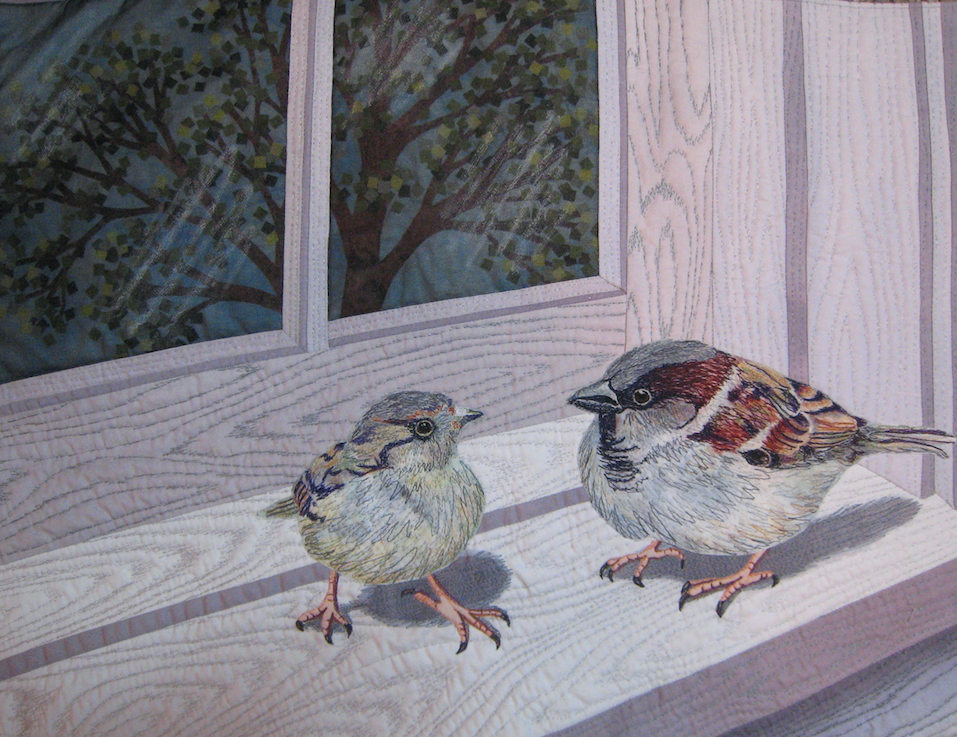
Creating Visual Texture (Lesson 4)
Texture in art engages our sense of touch and sight. It captures the way something should feel when you reach out to touch it. As quilters, we are naturally apt to want to reach out and touch a beautiful fabric or quilt. In this lesson, we began studying how you as a quilter can draw viewers in with the use of texture.
Consider the Sparrows-Matthew 10:29-31 by Randi Swindler. (Image courtesy of Randi Swindler)
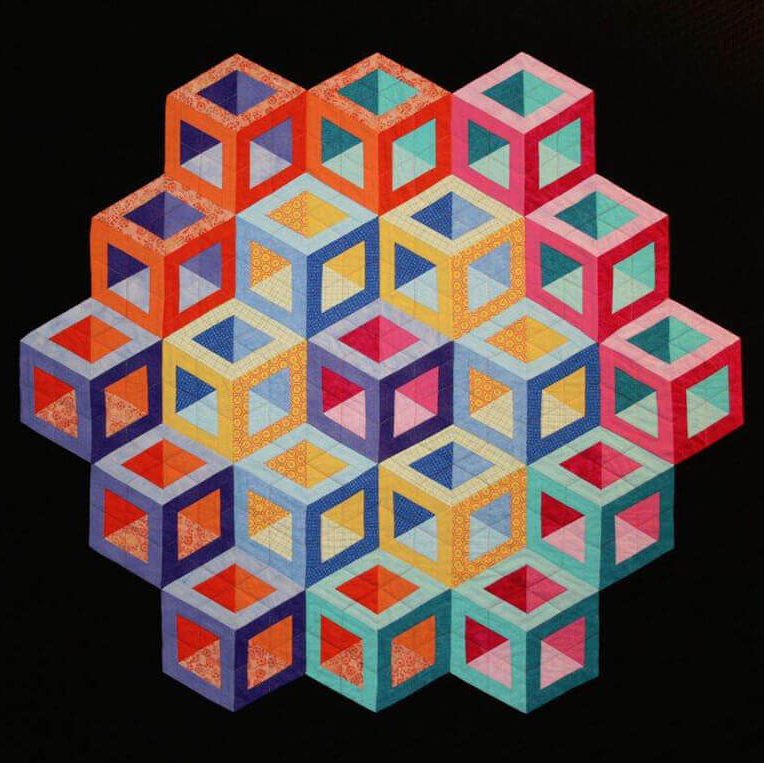
Understanding Form (Lesson 9)
Form in the simplest terms is a three-dimensional figure (i.e. cube, sphere, cylinder, cone, etc.). Form has length, width, and height. Think of it as something you can pick up, set something on, or casts a shadow. Form can bear weight due to it being three-dimensional, while two-dimensional Shape cannot.
Hollow Cube by Marci Baker. (Image by TheQuiltShow.com)

Space-Creating Perspective (Lesson 11)
Think of it this way. If it's large, it's closer. If it is small, it's further away. The road is drawn using two lines that meet at one point along the horizon line. The lines of the street are drawn at an angle to create the illusion of distance and depth. Notice how both the road, and trees along it, seem to disappear into the horizon. At the point where everything seems to disappear is called the vanishing point
Fabric Choices: Predictable vs. Unpredictable Fabrics (Lesson 23)
How and what fabric choices you make can result in a flat or less dynamic quilt. Scale, value, and pattern can make a huge difference when it comes to selecting fabrics for your quilt project. It's one thing to understand the principles of the terms, but another matter when it comes to actually putting a fabric group together.
Improvisation by Becky Goldsmith. (Show 611, Show 1704, and Show 2401). [Image courtesy of Becky Goldsmith]

Understanding the Subtle Nuances of Taupe (Lesson 24)
Focus on the often misunderstood taupe palette. This group of fabrics is more often than not relegated to what is frequently called the 'beige' category. But, understanding the subtle nuances of taupe go way beyond just being mere beige.
As you know, working within a single monochromatic color (Lesson 14) can be challenging for any quilter. Monochromatic literally means, "containing or using only one color." And yet, the taupe color palette can create a sense of simplicity, calm, harmony, relaxation, and sophistication.
Yoko Saito Quilt - Detail. (Show 1505) - Site in Japanese
![Nine-Patch Log Cabin Quilt (Circa 1870-1880s) [Image eBay]](/images/2020/Quilts/NinePatch_LogCabin_quilteBay.jpeg)
Scrap Quilts and Ugly Ducking Blocks (Lesson 27)
Scrap quilts have a charm and look all their own. And we as quilters cannot help but be captivated by their quirky mix of colors, patterns, fabrics, and the occasional unexpected blocks. Antique quilts especially evoke a sense of days gone by, when life moved at a slower pace. The softened and often faded "vintage" look of these quilts impart a sense of charm, comfort, softness and a 'please cuddle me' feeling. It is this desire for a "vintage" look that has quilters across the globe seeking out patterns and books. Walk through any quilt store and there is sure to be at least one book devoted to the subject. Antique quilts also serve as a wonderful resource for inspiration.
For those who played the quiz (Lesson 28), here are the answers:
Row 1 - Perspective, Analogous
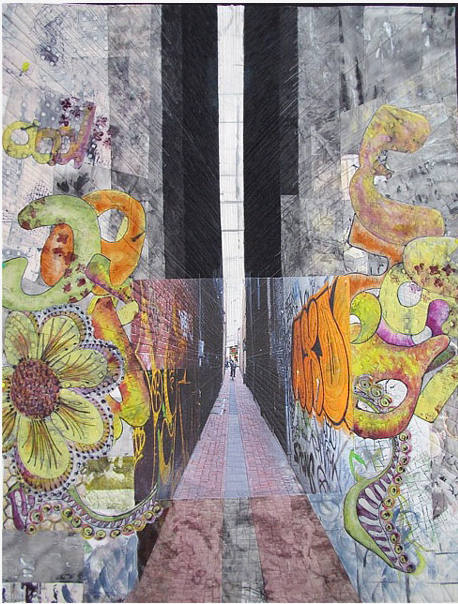
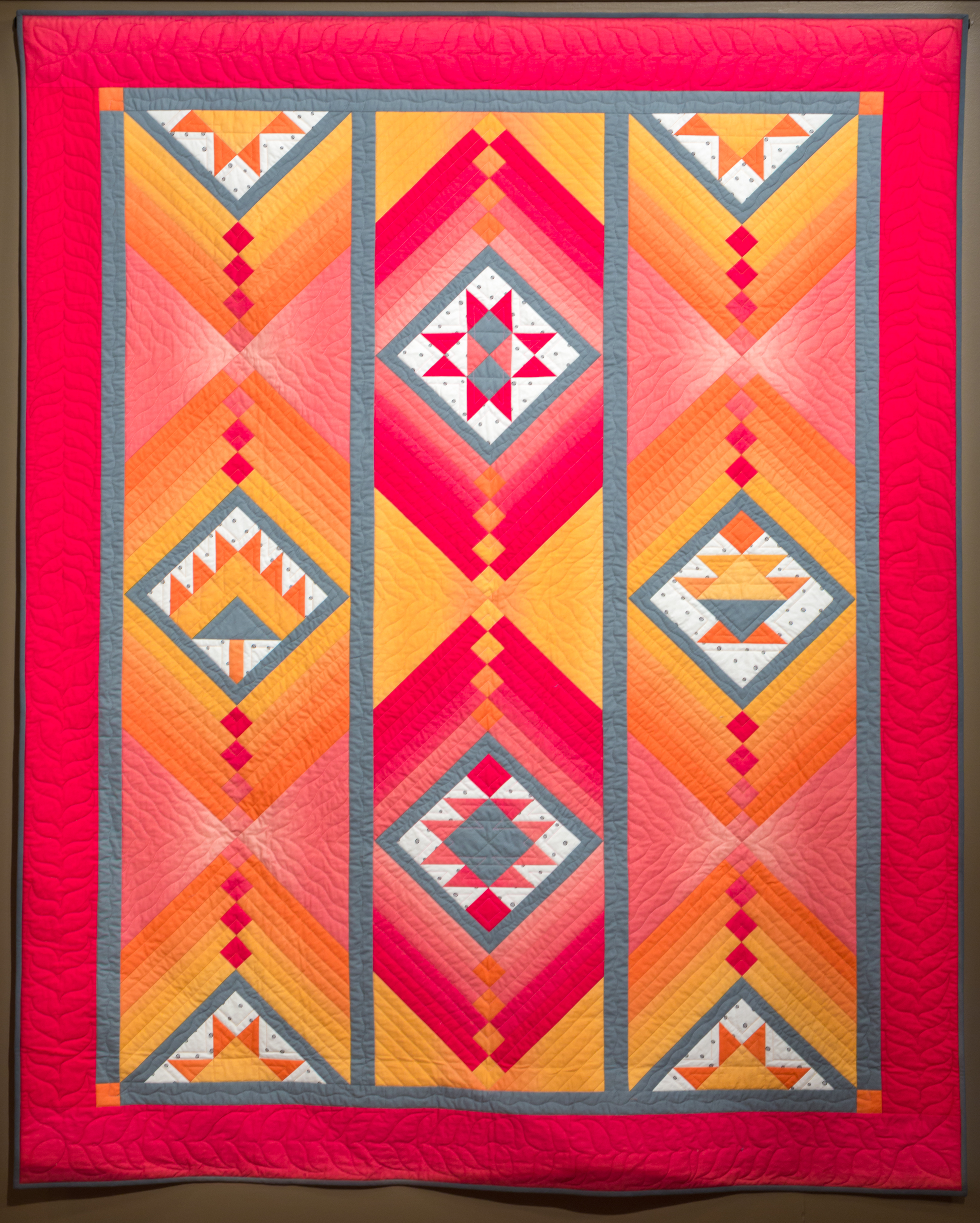
Amsterdam Alleyway: The Shortcut Between by Leslie Tucker Jenison (Show 1510). [Image by TheQuiltShow.com]. French Braid by Jane Hardy Miller (Show 1607). [Image by TheQuiltShow.com].
Row 2 - Monochromatic, Triad
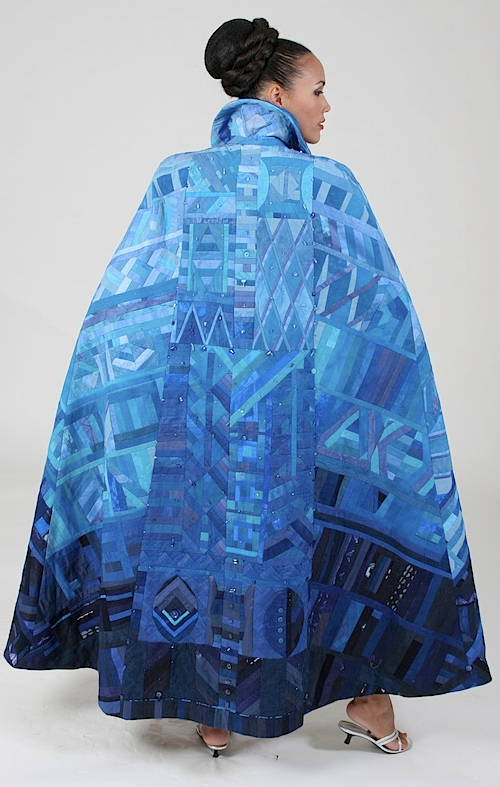

Utterly Blue Cape by Rachel D.K. Clark (Show 703) [Image courtesy of Rachel D.K. Clark]. Green by Frieda Anderson (Show 705).
Row 3 - Shadow, Value
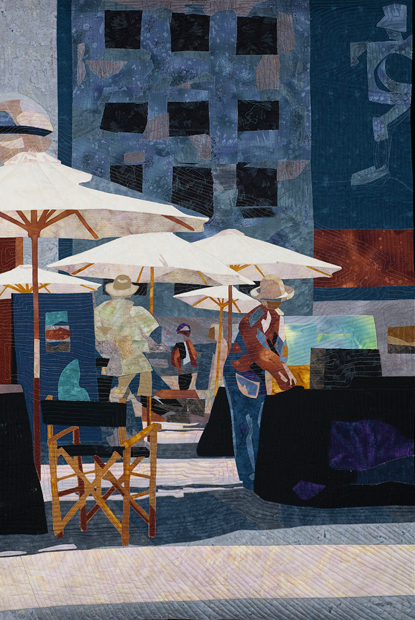
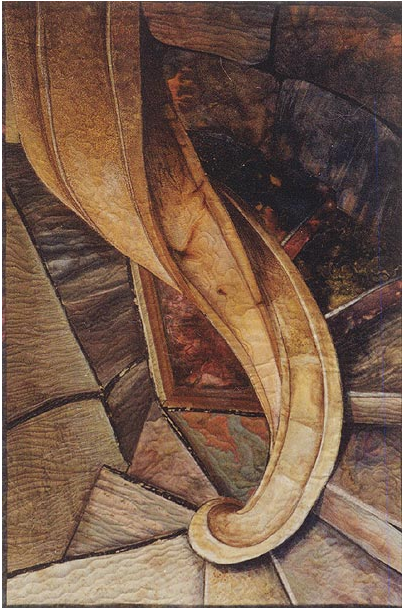
White Umbrellas by Joan Sowada (Image courtesy of Joan Sowada). Spyrogyra by Esterita Austin. (Show 506). [Image by TheQuiltShow.com].
Row 4 - Form, Texture
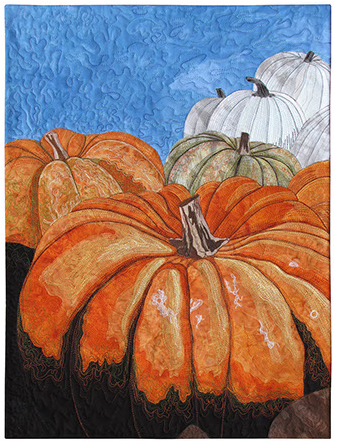
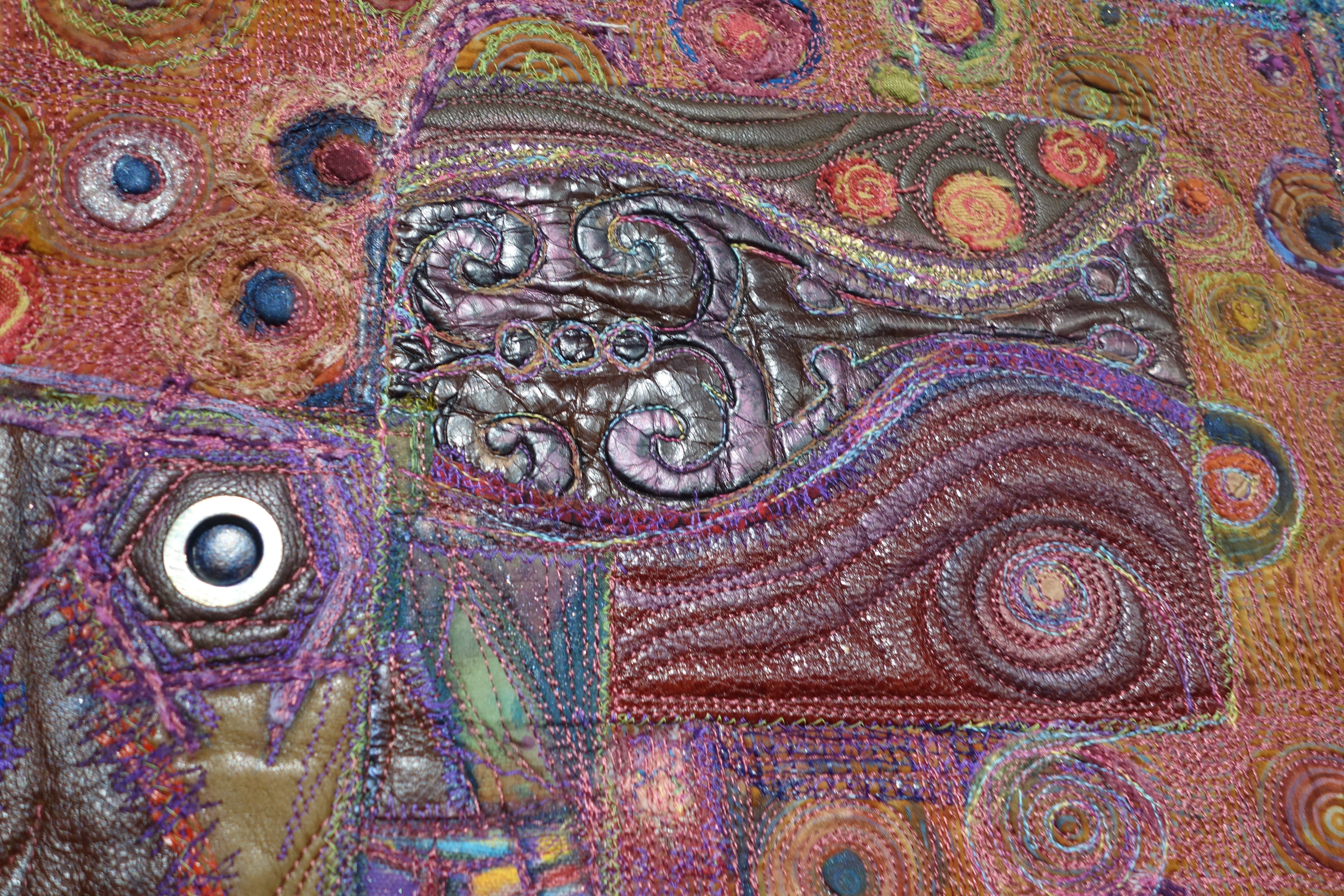
Heirloom Pumpkins by Susan Brubaker Knapp (Show 901, Show 1709). [Image courtesy of Susan Brubaker Knapp]. Urban Desires by Michele Sanandajian - Detail. (Show 2109). [Image by TheQuiltShow.com].
Row 5 - Line, Space

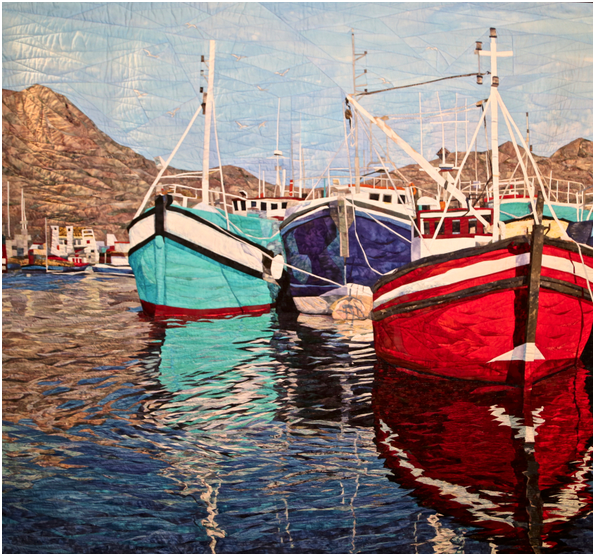
Canterbury #2 by Debbie Grifka (Show 2604). [Image by QuiltCon]. Reflections Of Cape Town by Cynthia England (Show 610, Show 1412, Show 2612). [Image by TheQuiltShow.com].
Click here for more topics related to The Art of Quilt Design program






.jpg)
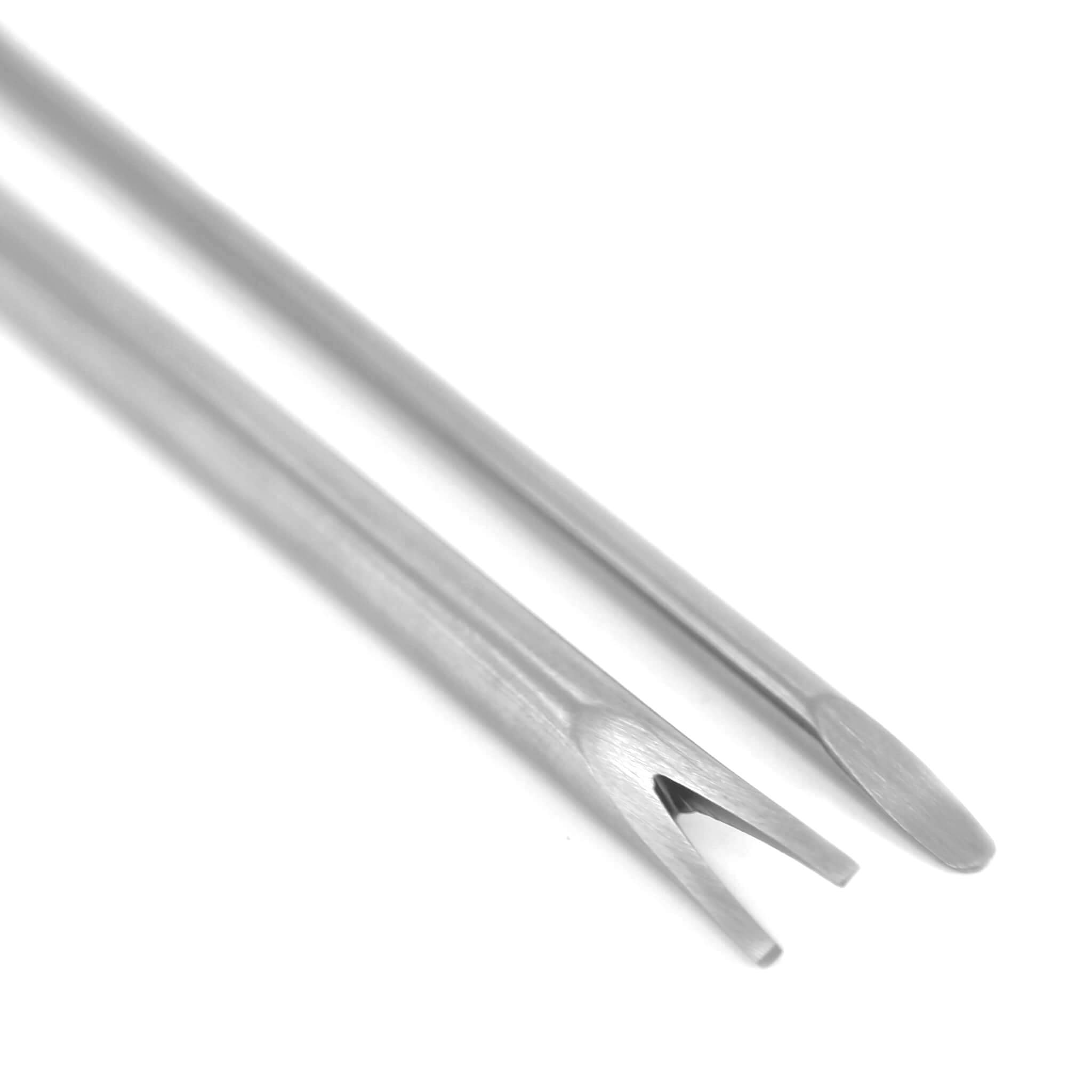
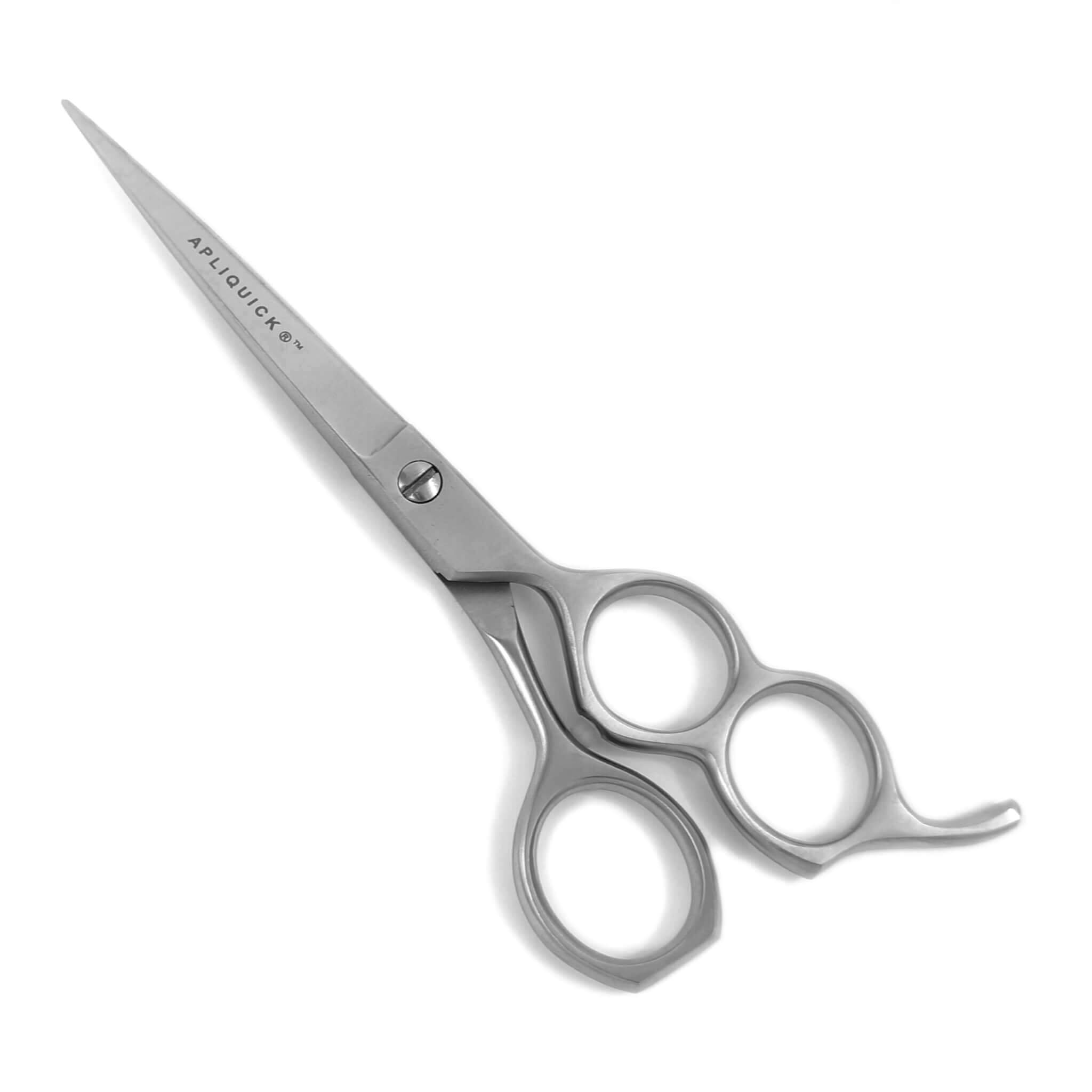

TCPDF ERROR: [Image] Unable to get the size of the image: mages/2017/design_to_quilt/BlueCapeRachelClark.png
Thanks for fixing the others
RSS feed for comments to this post